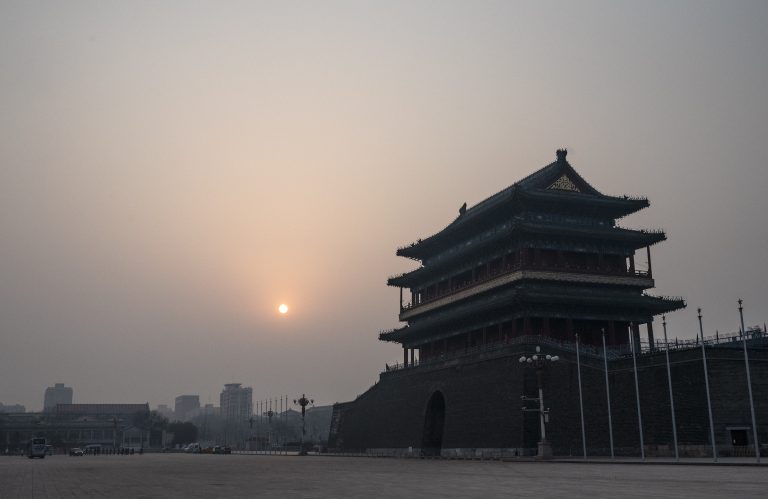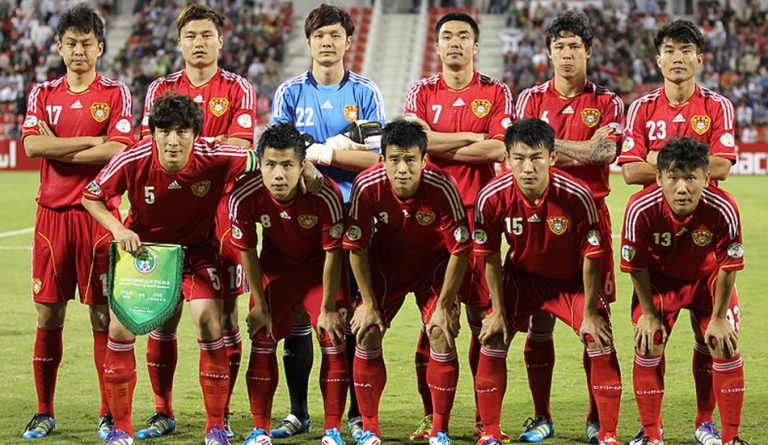News analysis
China is not doing well, and Xi Jinping is largely to blame.
Draconian efforts to curb coronavirus outbreaks throughout China and highly restrictive policies aimed at propping up the real estate sector have dealt visible damage to the national economy. Economists forecast a coming recession as foreign capital outflows accelerate amidst the “zero-COVID” policy, Xi’s “no limits” friendship with Russia rousing Western ire and the specter of sanctions, Beijing’s continued crackdown on China’s profitable big tech firms, and the U.S. Federal Reserve’s announcement of interest rate cuts.
At home, the humanitarian crisis caused by harsh lockdowns in addition to official corruption and incompetence in places like Shanghai are driving resident discontentment upwards and resulting in greater social instability.
The Xi leadership has moved to remedy some of these woes, taking careful steps near the end of April to inject more nuance into its policies and turn the situation around. Yet deficiencies inherent to the Chinese Communist Party (CCP) system, a dysfunctional officialdom, and factional struggle in the Party elite mean that Beijing is not likely to succeed in resolving its troubles.
Success
You are now signed up for our newsletter
Success
Check your email to complete sign up
On top of these challenges, Xi — now in his tenth year leading the Party — can hardly afford to discard or admit failure in the major policies that have become part of his political legacy as regime head. Preserving that political legacy becomes even more crucial with the 20th CCP National Congress scheduled for the end of the year, as Xi aims for a third five-year term in office.
But it could be Xi’s very reliance on the dictatorial power of the Party that harms the stability of the regime and jeopardizes his own rule.
MORE ON POLITICS IN THE CHINESE REGIME
- ‘Zero-COVID’ Lockdown in Shanghai Compounds Xi’s Political Dilemma
- 3 Key Takeaways From China’s ‘Two Sessions’ Meetings This Year
- In Leaked Recording, Elite Chinese Scholar Laments Crippling Dysfunction of Communist Regime
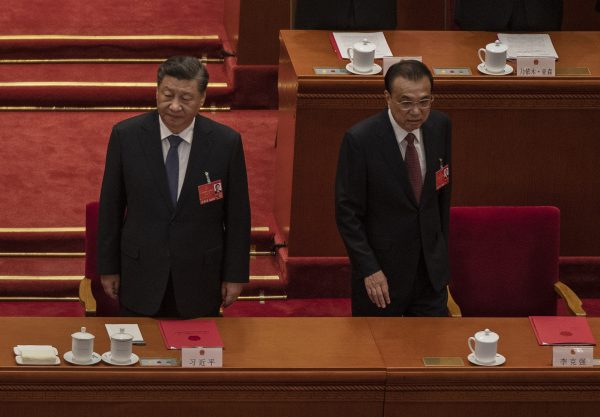
Political legacy
Communist China’s leaders are defined by their political legacy, or landmark policies undertaken for some political advantage, to demonstrate their ruling prowess, and underscore the superiority of the CCP system. For leaders of the atheist Party, political “accomplishments” are hugely important, as they cannot secure their legacy through their bloodline or in the afterlife.
When they are alive, CCP leaders do everything in their power to preserve their political legacy and prevent them from being challenged lest they lose authority and prestige (“quan wei”).
Mao Zedong led the communists to victory in the Chinese civil war and founded the People’s Republic, making him the CCP leader with the greatest quan wei. But his rule is notoriously defined by the Great Leap Forward, a campaign that created the worst famine in history, as well as the chaos of the Cultural Revolution.
The legacy of Deng Xiaoping, though he led the “reform and opening up” policies that jump-started China’s modern economic boom, is tainted by the bloodshed of the Tiananmen Square Massacre.
Struggles over matters of ideology can thus be a matter of life and death. Mao, who was politically marginalized after his disastrous Great Leap Forward, later launched the Cultural Revolution. Though the decade-long campaign led to millions more deaths and laid waste to China’s traditional heritage, Mao got leverage — and his revenge — against senior officials who had undermined him, like Liu Shaoqi and Peng Dehuai, neither of whom survived the “great helmsman.”
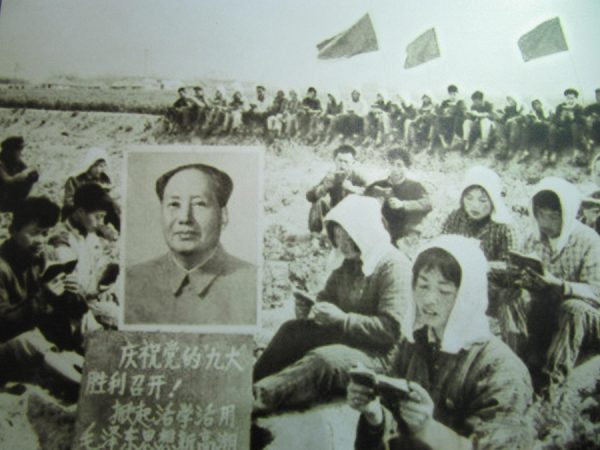
Deng, who had been retired for several years in 1992, was nonetheless powerful enough to embark on a “Southern Tour” to ensure that his successor Jiang Zemin would not abandon “reform and opening up.”
Deng was concerned because Jiang, whom he had allowed to become general secretary of the CCP following the Tiananmen Square Massacre in 1989, had been promoting “left-wing” policies like “class struggle” and “anti-bourgeois liberalization” after taking office instead of adhering to his political legacy. Deng’s famous statement, “whoever doesn’t reform will have to step down” is believed to have put on notice Jiang and others who sought to undermine the legacy of the retired — yet still-powerful — leader.
Like his predecessors, Xi Jinping has endeavored to show his ruling prowess and, as Party boss, highlight the CCP’s ideological and political superiority through his policies since taking power in 2012. He launched the anti-corruption campaign, embarked on “great power diplomacy,” reformed the People’s Liberation Army, claimed to have “ended extreme poverty” in China, and moved to deleverage and derisk the financial sector and the overheated property market in a time of slowing economic growth. Xi has promoted self-sufficiency through policies like “dual circulation” and “common prosperity,” as well as taken steps to correct the callous one-child policy that exacerbated China’s coming demographic decline.
Despite the coverup of the novel coronavirus outbreak in Wuhan in late 2019, the CCP claimed that Xi’s “people’s war” on the coronavirus and “zero-COVID” policies made China one of the safest countries during the pandemic and a leader in bio-safety.
Last year, Xi passed a “historical resolution” to differentiate himself from his immediate predecessors — Jiang Zemin and Hu Jintao — and set himself up as the “savior” of the Party and country amidst a tiding of rising nationalism. All these are now part of Xi’s political legacy, and are tied inextricably to his authority and prestige.
READ MORE:
- In 2022, Expect China’s Economy to Worsen Further
- As Challenges Mount, China’s Xi Calls for ‘Self-Revolution’
- May 4, 1919: When the Red Specter Entered China
Propaganda versus reality
However, all of Xi’s purported achievements have come at great cost to the regime and the Chinese people. His aggressive, expansionist foreign and military policies have alerted the world to the global ambitions of the CCP and courted greater geopolitical pressure against the People’s Republic in recent years. Xi’s domestic policies are alienating both Party elites and the official rank-and-file, worsening China’s economic deterioration, hastening capital outflows from the mainland, and causing the Chinese people to steadily lose faith in the regime.
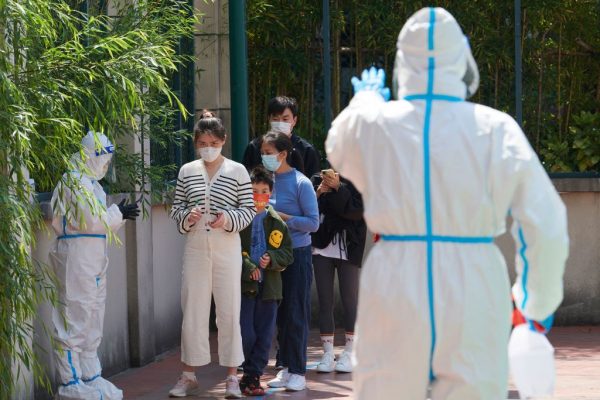
The economy is probably the most concerning for Beijing given that the CCP has linked its political legitimacy with economic performance since the Deng era. Officially, China’s GDP grew at 4.8 percent in the first quarter of 2022, and is expected to fare much worse in the second quarter given the lockdowns. Analysts have revised downward their China annual GDP forecasts to about 4 percent and below, or much lower than the official target of 5.5 percent.
In April, China’s official manufacturing Purchasing Managers’ Index fell to 47.4 from 49.5, the lowest level since February 2020. Further, outside investors sold Chinese bonds worth $17.7 billion in March through Hong Kong’s Bond Connect, the biggest outflow since August 2017, while foreign holdings of Chinese bonds stood at $3.57 billion at the end of March, the lowest in five months.
And despite his treatment in official propaganda as “people’s leader,” Xi’s policies — particularly the “zero-COVID” measures — have alienated a widening cohort of the Chinese public. Expressions of social discontentment are most visible in Shanghai, China’s largest city and a major financial powerhouse where residents are more affluent and outspoken. Officials have been found abusing their power for personal gain, or simply overwhelmed by the demands of keeping Omicron at bay.
In the week of April 25, Shanghai residents took to banging their pots and pans at night to protest food shortages; local officials insisted that protests were the work of “hostile foreign forces” and police threatened to arrest the organizers. On April 30, local residents stumbled upon a government storage site full of rotten vegetables that appeared to have been withheld by officials instead of being distributed to hungry families, and proceeded to smash the vegetables in the streets in protest. Other residents made similar discoveries and have accused local officials of corruption.
Many residents have also protested repeated COVID-19 tests and other excessive lockdown measures. Meanwhile, in an episode reminiscent of the 2019-2020 Hong Kong protests, two videos of Shanghai musicians playing “Do You Hear the People Sing?” were shared tens of thousands of times before they were deleted by regime censors.
Rather than the Party and country’s “savior,” Xi Jinping is increasingly viewed as a ruinous tyrant to be revolted against.
No way out
The Xi leadership has sought to salvage the situation through policy and propaganda. Official mainland media continually promoted “zero-COVID” as China’s best chance of success against the virus, while medical experts pointed the finger at local officials, blaming them for having supposedly misunderstood Beijing’s policy and implemented it too rigidly.
Policies meant to facilitate “smooth logistics and supply chains” amid the pandemic, ease real estate sector restrictions, and “strengthen infrastructure construction” were rolled out. In Shanghai, the lockdowns were relaxed in communities that achieved “societal zero-COVID,” while official figures reflected fewer cases near the end of April.
Xi Jinping, however, will most likely fail to extricate Communist China from its deepening crises as long as the policies that define his political legacy remain on the books. The “authoritarian efficiency” of the CCP system may be known for producing rapid and extreme results, but the totalitarian political culture is almost wholly incapable of effecting nuanced implementation of policy. Despite warnings from the top, CCP officials have taken to the “prefer left rather than right,” “one-size-fits-all,” and “campaign-style” approaches to carrying out Beijing’s orders.
READ MORE:
- Premier Li Keqiang Asks Officials to Avoid Communist-style ‘Bureaucratism’ as China’s Economic Crisis Worsens
- Chinese Premier Li Keqiang to Step Down Amid Xi’s Struggle for a Third Term This Fall
- ‘Unified National Market’ Push Exposes Steep Challenge of Reforming China’s Economy
For example, local governments would rather quarantine truck drivers and order plants to shut down in the event of outbreaks to fulfill more straightforward “zero-COVID” requirements rather than make exceptions under the more complicated “smooth logistics” policy to keep supply chains moving.
The quest to remain “politically correct” could see Shanghai officials clamp down more tightly again after relaxing some restrictions should cases tick up. Notably, Shanghai’s relatively relaxed approach to pandemic restrictions prior to the final week of March appear to have resulted in the sidelining of health experts in the city’s government who promoted targeted measures to manage the virus while minimizing their impact on the city and its people. This changing of the guard likely led to the heavy-handed “zero-COVID” fiasco in April.
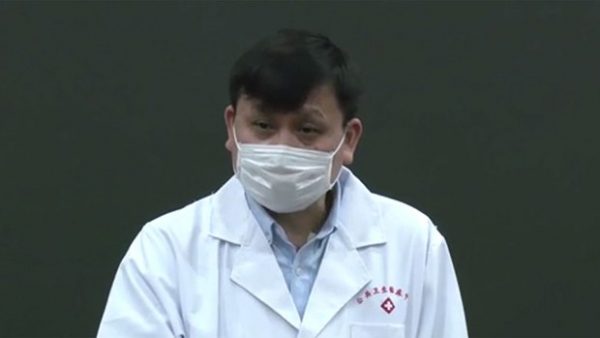
Xi’s policies also open him up to attack and sabotage from political rivals. In late April, two “third-generation red” Party princelings — Marshal Ye Jianying’s granddaughter Ye Jingzi and JD.com’s Xu Lei, who is allegedly the grandson of Marshal Xu Xiangqian — issued cryptic posts on Chinese social media that were interpreted by observers to mean that Xi’s factional foes were behind Shanghai’s disastrous handling of the pandemic.
While Xi undoubtedly bears the bulk of the responsibility for his policies, it cannot be ruled out that his rivals in the regime will seize opportunities to make a bad situation worse if it means that they can successfully undermine Xi’s political legacy for their own ends.
Xi’s political rivals could latch onto the disasters brought about by his rigid “zero-COVID” campaign, economic failures, and international pushback against his brash foreign policy to pressure him into making various concessions ahead of the 20th Party Congress.
Like Mao Zedong in the immediate aftermath of the Great Leap Forward, Xi is at risk of losing some power over his ruinous policies. Xi could look to avoid Mao’s fate by stepping up efforts to take out factional opponents through the anti-corruption campaign. This escalation of internal contradictions between Party elites could seriously endanger the security of the regime as a whole.
Larry Ong is a senior analyst with New York-based political risk consultancy SinoInsider. He was part of the SinoInsider team that forecasted the 19th Party Congress and 2018 Two Sessions personnel reshuffles with a high degree of accuracy.



